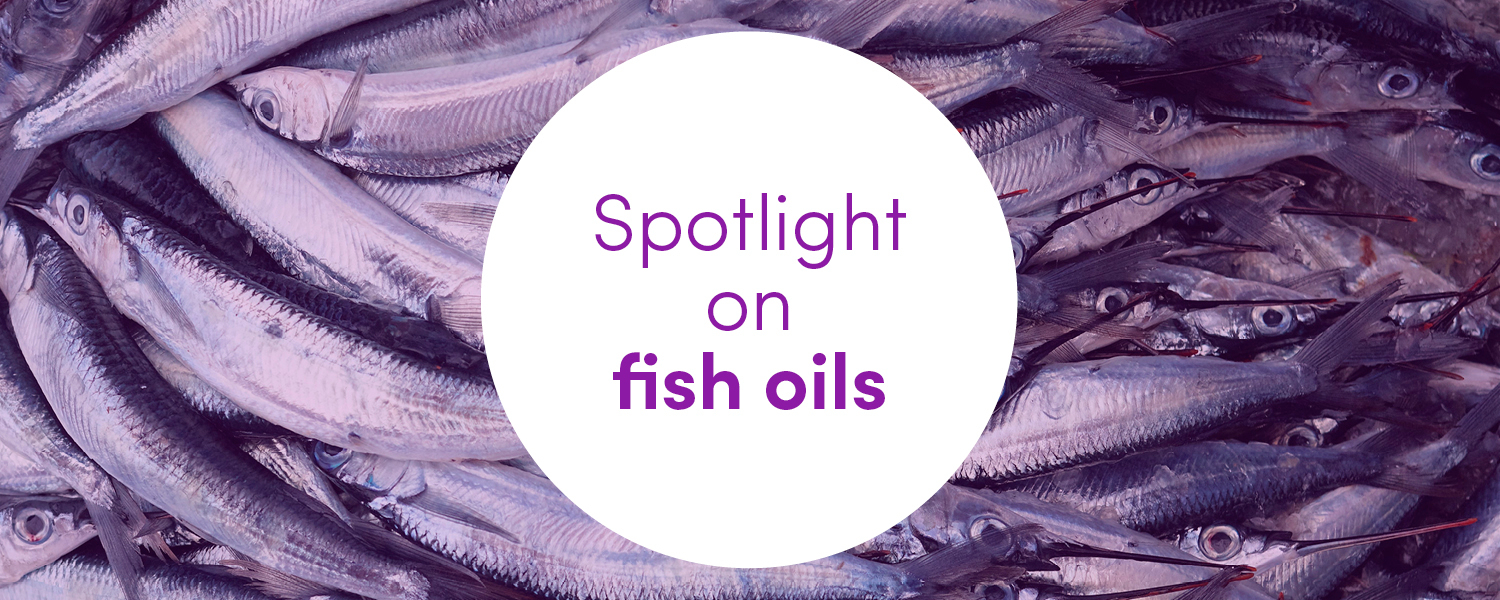
The world's appetite for fish and fish products continues to grow. The fisheries and aquaculture sector (also known as aquafarming) has significantly expanded since 1990 to 2018, with a 527% rise in global aquafarming production and 122% rise in the total food fish consumption (1).
Fish oil is derived from the tissues of oily fish that contain omega-3 fatty acids, such as EPA (eicosapentaenoic acid) and DHA (docosahexaenoic acid). Omega-3 fatty acids are largely used in the segments of aquafarming, animal nutrition and pet feed supplements, functional foods, infant formulas and pharmaceuticals.
In humans, omega-3 fatty acids provide health benefits, especially in metabolic functions such as cardiovascular health, inflammatory and immune responses, and the proper functioning of the nervous system (2). The growing awareness among healthcare professionals and the public about the importance of omega-3 fatty acids has led to a significant increase in fish oil consumption (3).
What vital.ly is doing
Many people who work at vital.ly have a love of the ocean. We want to ensure any fish oil we sell comes from sustainable, well managed fisheries.
In the past 6 months we conducted a thorough audit of all fish oil products currently stocked to ensure they meet a strict set of ethical and sustainability focused criteria. Adrian Meder, the Sustainable Seafood Program Manager from the AMCS (Australian Marine Conservation Society), has helped educate the team on this topic. We’ve learnt more about the current state of our fisheries and what impact the fish oil industry is having on marine life. These interviews are available on our podcast, Common Ground, as a two-part series. Fish farming, sustainability & seafood products...pt 1 and Fish farming & sustainability...pt 2
We also published a book review on Toxic: The Rotting Underbelly of the Tasmania Salmon Industry by Richard Flanagan.
As part of our audit, we reached out to all 16 brands that sell fish oils, requesting answers to the following set of questions:
- Where are your fish oils sourced from? (geographical location)
- Which fish do you use?
- Are they wild, wild caught, or farmed?
- Which global organisations do you have certification with?
- Do you have a heavy metal report available?
- Do you conduct third party independent testing?
Conducting this review gave us the information we needed to make an informed decision as to which brands we will continue to stock. We are pleased to report the majority of brands have existing and continued commitments to meet the criteria for sustainable fisheries. Many have gone above and beyond the requirements for conducting independent testing, heavy metal testing and certification.
The certifications cover various critical areas of fisheries management from target stock not being over exploited, no by-catch of endangered species and responsible traceability.
All brands source from wild caught, cold water fish. We are currently working with one brand upgrading to global certification.
For a majority of the brands, trace parameters of heavy metals and other environmental contaminants are lower than those recommended by the Global Organisation for EPA and DHA (GOED) and the Therapeutics Goods Administration (TGA).
Please note, we have audited fish oil supplementation from source, there will be variations within brands regarding process manufacturing, encapsulation and end product (which includes purification ![]() , distillation
, distillation ![]() , deodorisation
, deodorisation ![]() and formulation
and formulation ![]() ).
).
Given the difficulty with maintaining sustainable practices for salmon farming, vital.ly has stopped stocking any fish oil supplements containing salmon.
What comes next
Next week on Common Ground we'll cover vegan sources of omega 3.
vital.ly will continue to expand on a strict vetting process as part of a more conscious effort to ensure we’re continuing to work with ethically sourced partners and holding brands to continued higher standards and accountability. We appreciate your support and welcome your comments below.
vital.ly is a supporter of the Australian Marine Conservation Society.






